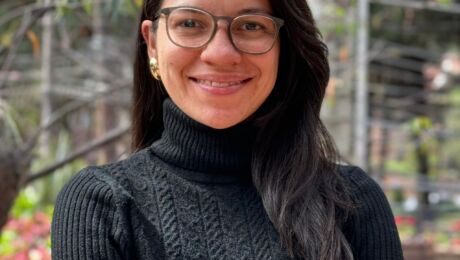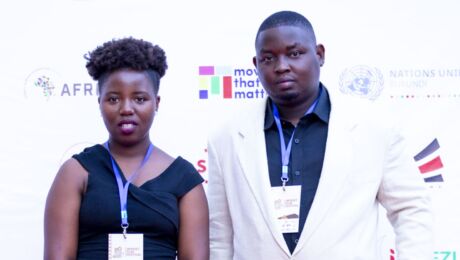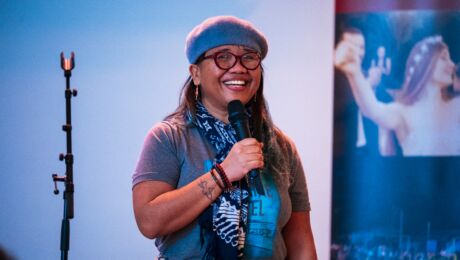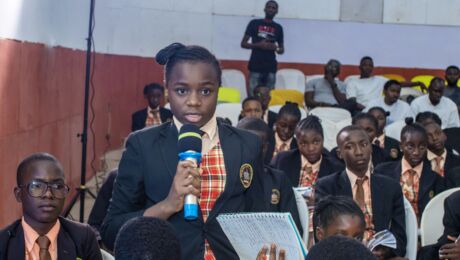Sarah Mpapuluu on Building a Human Rights Film Festival in Kenya from the Ground Up
Sarah Mpapuluu is the Festival Coordinator and Co-Founder behind the Under Our Skin International Film Festival on Human Rights in Kenya, which has been spotlighting powerful stories since receiving its first start-up grant from Movies that Matter in 2020. Now four editions in, the festival continues to grow as a platform for dialogue and change. 24 April, 2025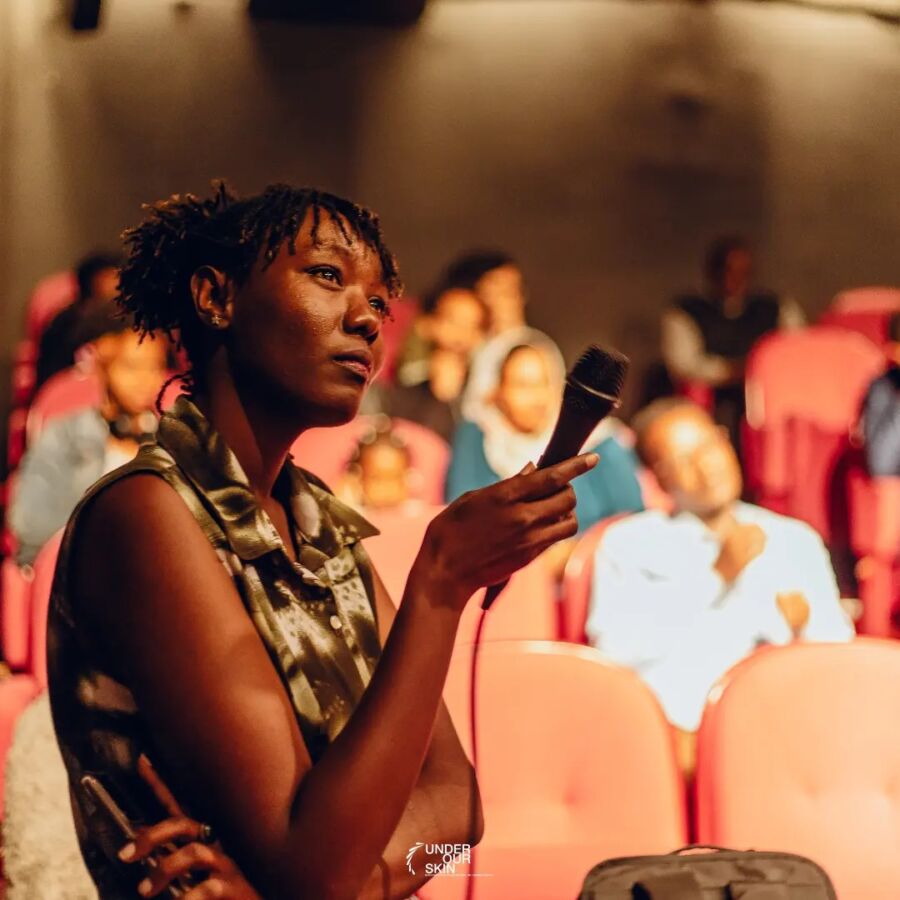
At IDFA 2024 in Amsterdam, we sat down with Sarah to reflect on the journey of launching a film festival in Kenya and the moments that shaped it. She shared how she has “realised how the medium of film is a tool that empowers a unique approach for reflection and discussion.”
The journey started in 2019, when Sarah decided – together with some others – to explore the intersection of film and human rights. The initial focus was on human rights and the impact of social justice issues, particularly in Kenya, where a growing interest in film and activism was becoming apparent. With everyone confined to their homes during the COVID-19 pandemic, the team began to meet virtually and put together a proposal to organise a festival. Although the group was new to the world of film festivals, they wrote their first proposal, driven by their dedication to create something meaningful. “At that moment we were just doing it because we liked the idea and hoped it would happen. It was the first proposal we had ever written and then we got it”, Sarah tells me smiling.
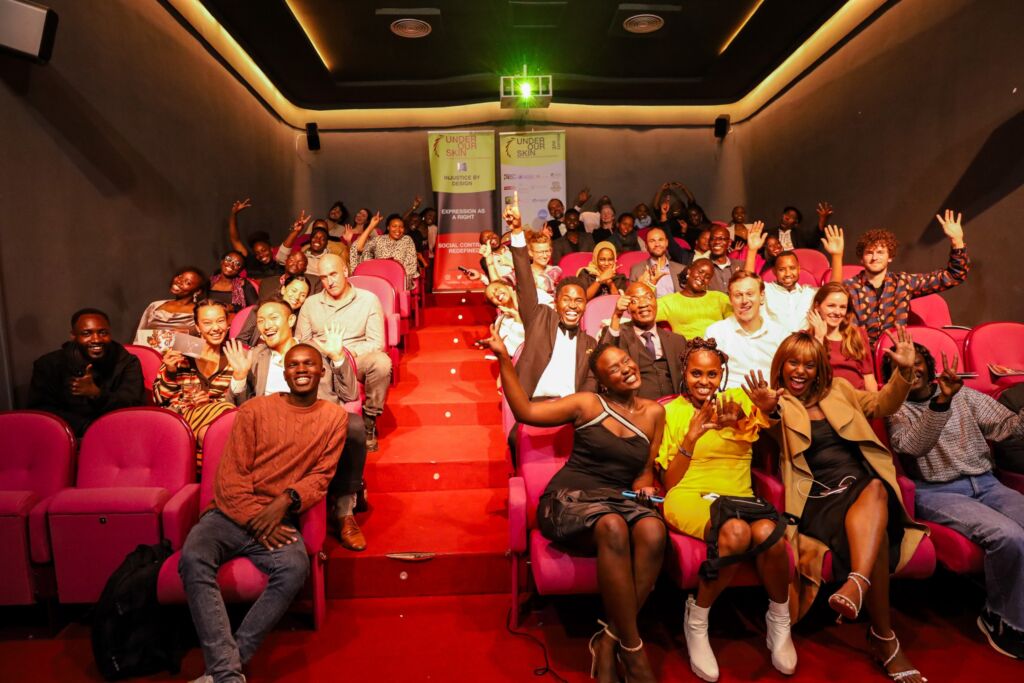
Even though it took place during a tumultuous time, the first edition of the festival was a success. In 2021, after months of lockdown, the festival was able to take advantage of a brief window and took the opportunity. The public was eager for cultural events, and they flocked to the screenings. This moment was a turning point showing the potential for such initiatives in the country. Sarah says, “for the next edition of the festival, we wanted to go beyond the usual setting of Nairobi, where film festivals are often concentrated. Recognising that many rural and informal communities are left out of the cultural dialogue, we decided to make the festival more inclusive by reaching out to areas outside the capital.” This is why the festival team decided to organise satellite screenings in smaller towns and informal settlements. The screenings in these new locations were not only about showing films but also created opportunities for communities to discuss social challenges such as police brutality and gender-based violence.
During each edition of the festival, the team emphasises the importance of community engagement. Sarah:
We perceive each screening as more than just an event, namely as a step toward a more socially aware and empowered society.
One significant example that Sarah stresses was the time that a woman, actively involved in the fight against female genital mutilation, courageously shared her story in front of her community. The woman spoke about her personal experiences and the changes she had witnessed over the years, sparking a meaningful discussion within her community. This became a pivotal moment for the festival, demonstrating the power of local voices in driving social change. Because of this, Sarah and her team realised that films alone are not enough; personal stories make the conversation more relatable and powerful.
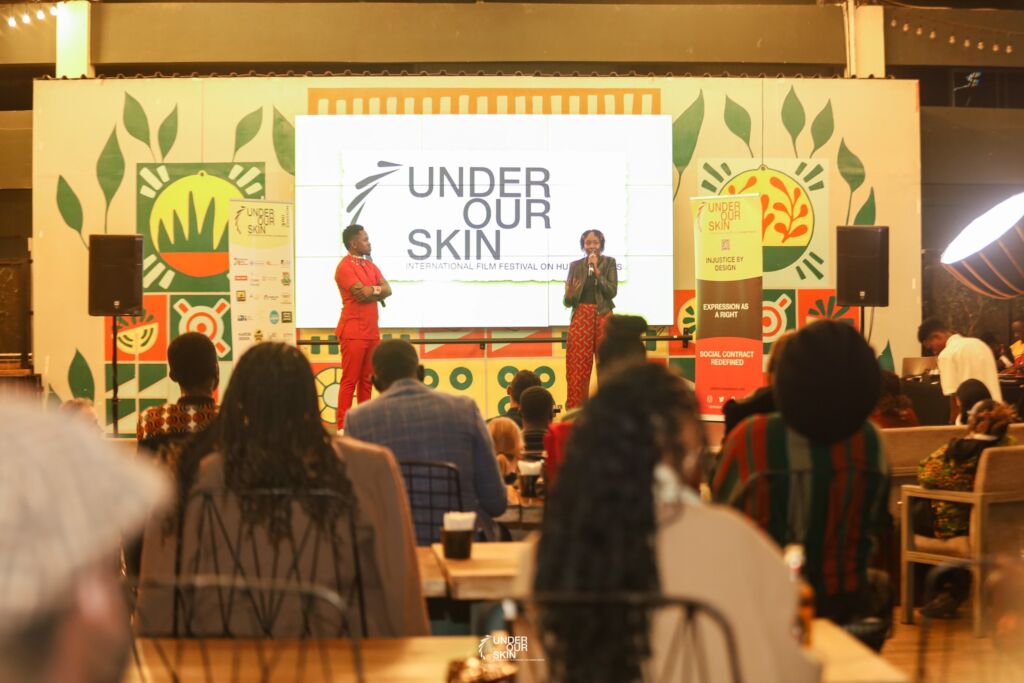
“Through these screenings and dialogues, we are able to foster a sense of shared responsibility within the community,” states Sarah. It is not just about bringing awareness, but about igniting action that could lead to long-term change. By empowering local people and giving them the tools to continue the conversation and drive social change, they tried to create a sustainable model for cultural and social transformation.
For its third edition, the festival decided to take this engagement for the community a step further. As an addition to traditional screening venues, ventured informal settlements and areas with limited access into cultural events, they brought screenings to public spaces like markets, churches, and even football fields where large groups gathered regularly. This was particularly effective in places where people would not typically have access to cinemas or cultural events due to financial constraints. As a result, the festival evolved into more than just a gathering of film lovers, it became a space for activists and communities to come together, share their voices and tackle important issues. “With each edition, the festival team has prioritised community engagement, ensuring that every screening serves as a meaningful step toward a more socially conscious and empowered society.”
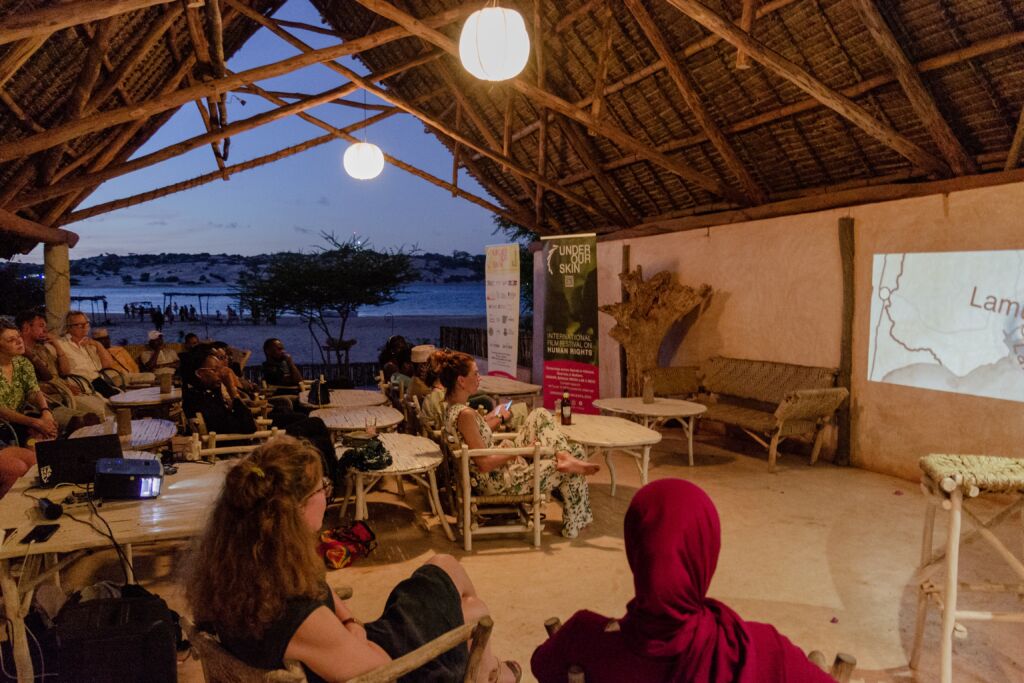
The festival’s growth demonstrates the power of cinema to create dialogue and promote social change. “Our goal is to cultivate a culture of cinema and discussion around critical social issues that not only entertains but also educates and empowers.” In the future, the festival hopes to continue expanding its reach, training young leaders, and empowering communities to drive social change through film.
Movies that Matter supports human rights festivals around the world. In this series, we highlight the stories of several people involved in our international programmes to discuss their projects and the impact they are making. The International Support team is committed globally by financially supporting human rights film festivals (Grant Programme), film screenings at embassies (Embassy Film Menu), an outreach programme for activists (Activist Programme), coordinating a partnership between festivals (Human Rights Film Network) and workshop programmes for film festival organisers (Cinema without Borders).
